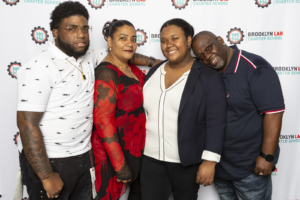Georgia Families Get Virtual Charters Boost
President of the Georgia Chamber, Chris Clark noted the necessity for innovation when preparing an educated workforce. Virtual public schools, like Georgia Cyber Academy (GCA), bring that type of advancement to the state by creating individualized education styles that benefit the child’s needs and experiences. Clark also noted, reforms like charter schools resulted in $400 million in additional federal funds to Georgia.
“We believe the right of parents to choose the best possible education for their children is the only way to ensure all of Georgia’s children receive the finest education possible, said Georgia Families for Public Virtual Education President, Renee Lord. “It is important the Commission follow the law, keeping a competitive environment of top schools, traditional and alternative alike, in order for Georgia to have a strong and successful workforce for the future. Set a funding formula that allows at least some of the funds already allocated for our students to follow them to their virtual public school,” she said.
At a virtual school summit held in early November, local financial experts agreed a reasonable funding level of $6,000 to $7,000 was indeed an accepted appropriate level of per pupil funding for virtual charter schools. For true and reasonable cost factors, the local experts reviewed other state audits of virtual schools, budgets submitted by a virtual school applicant, funding levels of virtual schools in other states and third party funding studies to come to this sound conclusion.
In 2008, Georgia passed landmark legislation HB881, requiring the Georgia Charter Schools Commission to provide fair and equitable funding for online public charter schools. The typical student in Georgia receives over $8,500, yet virtual charter schools only receive around $3,200–among the lowest of any state.
Under HB 881, a virtual charter school student’s funding could be reduced only if the Commission followed a four-step process that included research and study into the actual costs of virtual education and identified any specific savings or efficiencies unique to the virtual education model.
Currently Georgia Cyber Academy, the only statewide virtual charter school in Georgia, recently added ninth grade with approximately 600 new students. In June of this year, two virtual charter schools withdrew their applications following the Commission’s decision to provide inadequate and unacceptable funding. The new applicants, as well as Georgia Cyber Academy, have sought to operate at around two-thirds of the full funding legally available–around $6,500 per pupil.
While students and parents await the additional funding promised by HB 881, school officials have been forced to increase class sizes and eliminate art, music, and foreign language classes from the planned curriculum. Despite funding challenges, GCA continues to make significant gains in student achievement, outperforming Georgia state (brick and mortar school) averages.
Virtual public charter schools are statewide, full-time public schools that employ state-certified public school teachers to oversee and guide students’ work. Under this program students are able to work at home via computer and Internet connection, while still using traditional school materials like text books, under the guidance of a parent or responsible adult. GFPVE is a coalition representing more than 5,000 public virtual charter school students, parents, teachers, and supporters from across Georgia.
Related articles
- What Does a Virtual Education Cost? (edreformer.com)
- Georgia Families Want Seat On Ed Research Panel (edreformer.com)
- Pennsylvania Virtual Charter School: A Forerunner in the Virtual Environment (brighthub.com)
- Chicago Charter Schools Take Top Scores on ACT (prnewswire.com)
- Virtual School, Wisconsin Connections Academy, Announces Grade Expansion; Adds Online High School for Students Statewide (prweb.com)








0 Comments
Leave a Comment
Your email address will not be published. All fields are required.